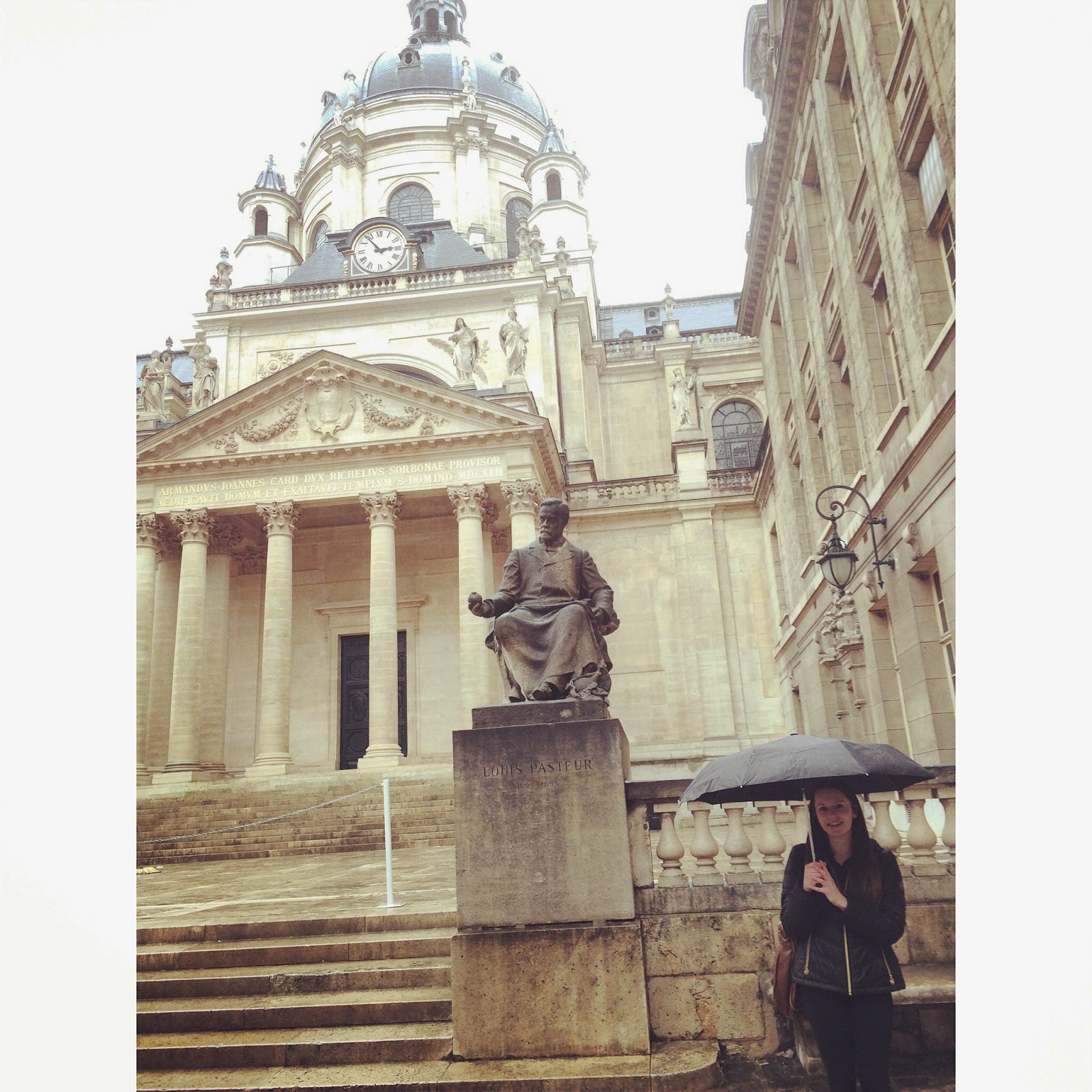The Sorbonne and its History
I decided to dedicate this blog post to my current university, the prestigious and beautiful Sorbonne.
As part of my study abroad in Paris, I am a student at the University of Paris: Sorbonne. The university is so large that it's made up of many different "branches" or schools. I attend University Paris IV which specializes in literature and the humanities. My classes are in a building located in another arrondissement (district) so today was the first time I actually saw the true Sorbonne/campus. It was incredible to walk the courtyard and sit in a lecture room where so many great minds have been.
Now for some history...
The Sorbonne was founded by Robert de Sorbon, the chaplain and confessor of King Saint Louis in 1257.
The university has hosted many great minds including Albert the Great and Thomas Aquinas.
By the end of the middle ages, it had become the biggest cultural and scientific center in Europe.
During the Renaissance, kings and higher society turned to members of the university for decision-making; therefore playing an important role in the society of the kingdom.
In 1821, Napoleon decided to move studies from one Parisian college to the old Sorbonne and students now cam to study languages, literary history, philosophy and geography.
About 70 years later, parts of the university were restored due to the centenary celebrations of the French Revolution. The Sorbonne became "the symbol of science and culture of the young French republic."
The first half of the 20th century was known for its revival period. Its professors and researchers led the way for major scientific developments in history, literature and science. This was seen in the many Nobel Prize winners: Pierre and Marie Curie, Hean Perrin, Louis de Broglie, Irène and Frédérique Joliot-Curie.
Throughout history, the Sorbonne has been seen as one of "the most prestigious centers of intelligence and culture, of science and of the arts" and it continues to be. It is due to its history (and future) that I am honored to attend this incredible institution.
Bisous,
Lyndi
*I summarized from their site but if you're curious to learn more check it out at: http://www.sorbonne.fr/en/the-sorbonne/history-of-the-sorbonne/
As part of my study abroad in Paris, I am a student at the University of Paris: Sorbonne. The university is so large that it's made up of many different "branches" or schools. I attend University Paris IV which specializes in literature and the humanities. My classes are in a building located in another arrondissement (district) so today was the first time I actually saw the true Sorbonne/campus. It was incredible to walk the courtyard and sit in a lecture room where so many great minds have been.
Courtyard shot (above)
The lecture hall we went in (photo from Wikipedia)
Now for some history...
The Sorbonne was founded by Robert de Sorbon, the chaplain and confessor of King Saint Louis in 1257.
The university has hosted many great minds including Albert the Great and Thomas Aquinas.
By the end of the middle ages, it had become the biggest cultural and scientific center in Europe.
During the Renaissance, kings and higher society turned to members of the university for decision-making; therefore playing an important role in the society of the kingdom.
In 1821, Napoleon decided to move studies from one Parisian college to the old Sorbonne and students now cam to study languages, literary history, philosophy and geography.
About 70 years later, parts of the university were restored due to the centenary celebrations of the French Revolution. The Sorbonne became "the symbol of science and culture of the young French republic."
The first half of the 20th century was known for its revival period. Its professors and researchers led the way for major scientific developments in history, literature and science. This was seen in the many Nobel Prize winners: Pierre and Marie Curie, Hean Perrin, Louis de Broglie, Irène and Frédérique Joliot-Curie.
Throughout history, the Sorbonne has been seen as one of "the most prestigious centers of intelligence and culture, of science and of the arts" and it continues to be. It is due to its history (and future) that I am honored to attend this incredible institution.
Bisous,
Lyndi
*I summarized from their site but if you're curious to learn more check it out at: http://www.sorbonne.fr/en/the-sorbonne/history-of-the-sorbonne/





Comments
Post a Comment